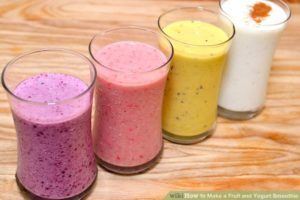
Recently Diagnosed or Relapsed? Stop Looking For a Miracle Cure, and Use Evidence-Based Therapies To Enhance Your Treatment and Prolong Your Remission
Multiple Myeloma an incurable disease, but I have spent the last 25 years in remission using a blend of conventional oncology and evidence-based nutrition, supplementation, and lifestyle therapies from peer-reviewed studies that your oncologist probably hasn't told you about.
Click the orange button to the right to learn more about what you can start doing today.
- You are here:
- Home »
- Blog »
- Multiple Myeloma »
- Multiple Myeloma Diet- Organic vs. Conventional
Multiple Myeloma Diet- Organic vs. Conventional

“In a study, those who ate more organic produce, dairy, meat and other products had 25 percent fewer cancer diagnoses over all, especially lymphoma and breast cancer.”
I am a long-term multiple myeloma survivor who depends on evidence-based, non-conventional therapies to remain in remission. My multiple myeloma diet is mostly organic. Not 100% but almost.
According to the studies linked below, an organic diet results in fewer cancer diagnosis and/or a high quality diet helps cancer survivors live longer. Further, according to one of the articles linked below, multiple myeloma is linked to chemicals such as benzene. In the years preceding my MM diagnosis, I worked in a commercial printing plant and was exposed to benzene daily…
Yes, organic foods, on average, do cost more. Life is all about priorities. Because I am a long-term multiple myeloma survivor, I’ve made organic, high quality foods a high priority.
If you’ve never been diagnosed with multiple myeloma and you’re wondering if eating organic will reduce your risk of ever recieving a diagnosis of MM, the answer is YES.
To learn more about your Myeloma Diet as a therapy click now-
There are a host of studies that cite certain lifestyle risks that increase a person’a chance of a multiple myeloma diagnosis.
If you have been diagnosed with MM recently and you are wondering if your diet makes a difference in your survival, the answer is YES.
A diagnosis of multiple myeloma is going to spark a host of questions. Answers to the questons below are not going to be addressed by your oncologistist unless you ask him or her. If you are not comfortable advocating for yourself, you can bring your primary caregiver along with you.
- Should I get a second opinion?
- Should I see a specialist?
- Should I prehabilitate before my MM therapy?
- What is integrative MM therapy?
- What is complementary MM therapy?
Your nutrition, before, during and after your conventional therapies is only one of several issues for you to consider. I am a long-term MM survivor. I can answer your questions with evidence-based information.
Please scroll down the page, post a question or comment and I will reply to you ASAP.
David Emerson
- MM Survivor
- MM Cancer Coach
- Director PeopleBeatingCancer
Recommended Reading:
Can Eating Organic Food Lower Your Cancer Risk?
In a study, those who ate more organic produce, dairy, meat and other products had 25 percent fewer cancer diagnoses over all, especially lymphoma and breast cancer…
Now a new French study that followed 70,000 adults, most of them women, for five years has reported that the most frequent consumers of organic food had 25 percent fewer cancers over all than those who never ate organic. Those who ate the most organic fruits, vegetables, dairy products, meat and other foods had a particularly steep drop in the incidence of lymphomas, and a significant reduction in postmenopausal breast cancers…”
What Fruits & Veggies Should You Buy Organic? The Dirty Dozen and the Clean Ten
“There are a lot of questions surrounding the purchase of organic foods. Is it worth the extra cost? Should all foods be organic? Is it just a hoax? The risk of nonorganic food stems from pesticide residue left on the food after harvest.
Studies show that pesticides may lead to birth defects, nerve damage, cancer, and more. (Besides, does the image of eating foods that have had chemicals dumped on them sound appetizing? Probably not.) The severity of such effects depends on the toxicity and exposure to the pesticide…”
Risk of leukemia and multiple myeloma associated with exposure to benzene and other organic solvents: evidence from the Italian Multicenter Case-control study.
“We did not confirm the known association between benzene and AML, though this is likely explained by the strict regulation of benzene in Italy nearly three decades prior to study initiation.
Our results support the association between benzene, xylene, and toluene and chronic lymphatic leukemia and between benzene and MM with longer latencies than have been observed for AML in other studies.”
High-Quality Diet Associated With Lower Mortality in Cancer Survivors
“For cancer survivors, a high-quality diet is associated with a reduced risk of overall and cancer-specific mortality, according to a study recently published in JNCI: Cancer Spectrum…
Our results highlight the importance of a ‘total diet’ approach to improving survival among cancer patients,” the authors write.”


